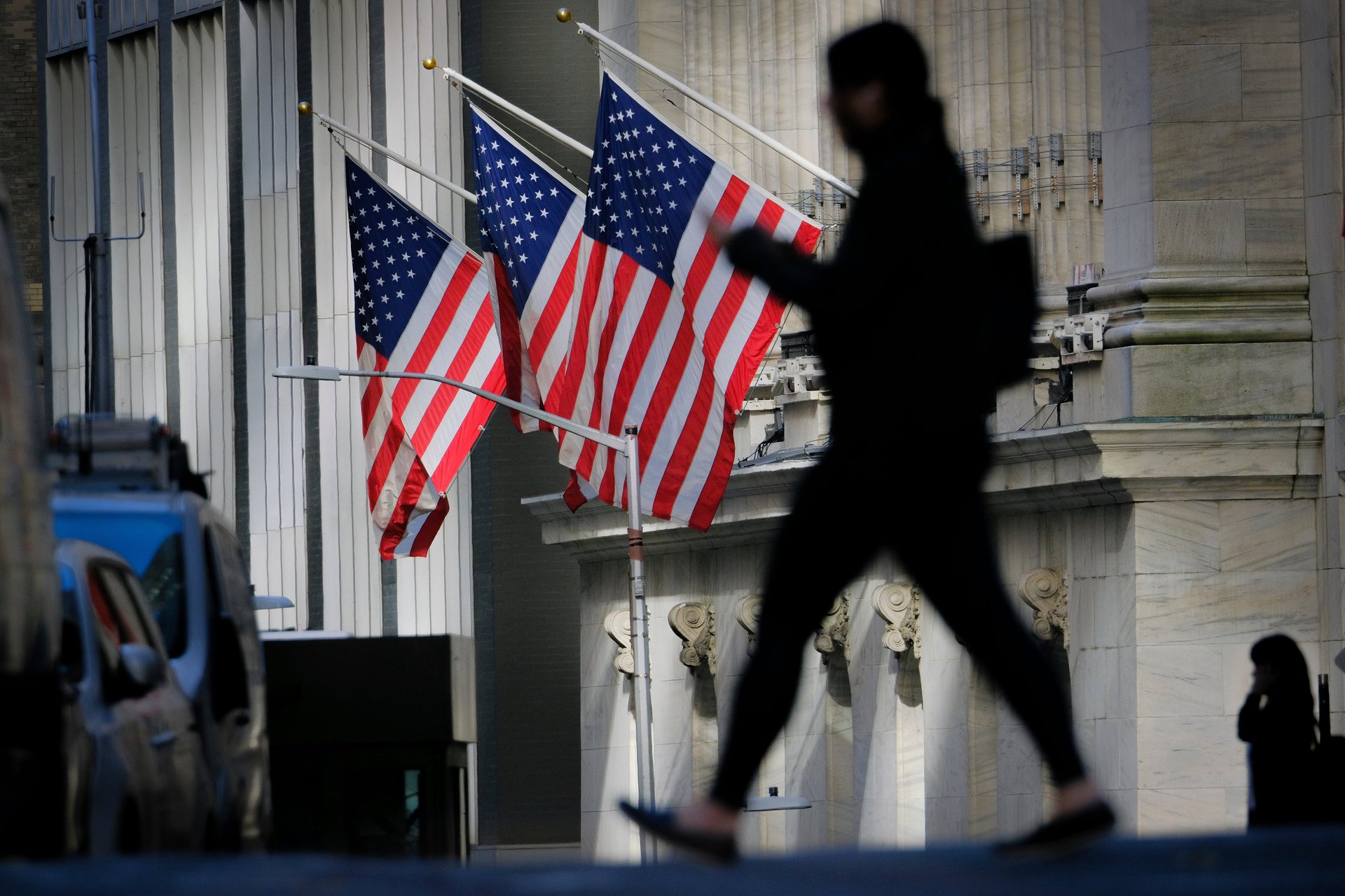Stock market today: Asian shares are mostly lower after quiet session on Wall Street
Shares are mostly lower in Asia after a mixed close on Wall Street

BANGKOK (AP) — Shares mostly fell in Asia on Tuesday after a mixed close on Wall Street, where wild recent moves calmed a bit at the beginning of a quiet week for data releases.
Suggested Reading
Benchmarks dropped more than 1% in Hong Kong and Tokyo and South Korea’s Kospi gave up 3% of its big gains from a day earlier.
Related Content
The flashpoint for the stock market’s movements in both directions has been what the bond market is doing. The 10-year U.S. Treasury rose to 4.64%.
High bond yields hurt prices for stocks and other investments, while slowing the economy and raising the pressure on the financial system.
Late Monday, office-sharing company WeWork confirmed it is seeking bankruptcy protection late Monday. Trading in its shares was halted Monday amid speculation over its restructuring plans.
It's a stunning decline for a one-time Wall Street darling that promised to upend the way people went to work around the world. The company's shares cost more than $400 two years ago but can now be had for less than $1.
Tokyo's Nikkei 225 advanced 1.1% to 32,343.05 and the Hang Seng in Hong Kong dropped 1.5% to 17,697.16. The Shanghai Composite index slipped 0.4% to 3,047.60.
Australia's S&P/ASX 200 fell 0.1% to 6,988.30 after the central bank raised its key interest rate by 0.25 percentage points, to 4.35%.
The Reserve Bank of Australia has been trying to bring inflation back to its 2%-3% target by raising interest rates, though it's near the end of its tightening cycle. The RBA had left its cash rate at 4.1% for four straight meetings, but quarterly inflation data came in above expectations last week.
In Seoul, the Kospi dropped 3% to 2,427.82. It gained 5.7% on Monday after the government, seeking to shore up public support ahead of legislative elections in April, restored until the end of June a ban on short-selling to protect small investors from what regulators said was “massive illegal naked short-selling by global investment banks” and other illegal activities.
Elsewhere in Asia, shares edged higher in Taiwan but fell in Bangkok and Mumbai.
On Monday, U.S. stocks drifted and the S&P 500 added 0.2% to 4,365.98. The Dow Jones Industrial Average edged 0.1% higher and the Nasdaq composite gained 0.3%, to 13,518.78.
This upcoming week looks to have relatively few big events that could shake financial markets. It’s a slower week for corporate profit reports, with roughly 50 companies in the S&P 500 set to say how much they earned during the summer, down from about 150 a week before.
The events with perhaps the most potential to shake markets this upcoming week are speeches by officials from the Federal Reserve.
Last week, the Federal Reserve held its main interest rate steady for a second straight time, leaving it at its highest level since 2001. It’s jacked up its federal funds rate from nearly zero in hopes of getting high inflation under control.
A report Monday from the Federal Reserve said significant numbers of loan officers at banks reported tightening their standards to lend money. Many banks cited a less favorable or more uncertain outlook on the economy. Slower lending would weigh on business activity.
The week's end will bring a preliminary report on U.S. households' inflation expectations. The Fed watches that closely on the premise that too-high expectations could trigger a vicious cycle that keeps inflation high.
In the oil market, crude prices gained after Saudi Arabia and Russia reiterated their commitment to maintaining oil supply cuts of more than 1 million barrels per day until the end of the year.
A barrel of benchmark U.S. crude slipped 35 cents to $80.47 in electronic trading on the New York Mercantile Exchange. It rose 31 cents to settle at $80.82 a barrel on Monday.
Brent crude, the international standard, gave up 43 cents to $84.75 a barrel. It rose 29 cents to $85.18 per barrel on Monday.
The U.S. dollar rose to 150.23 Japanese yen from 150.08 yen. The euro fell to $1.0712 from $1.0719.
___
AP Business Writer Stan Choe contributed.